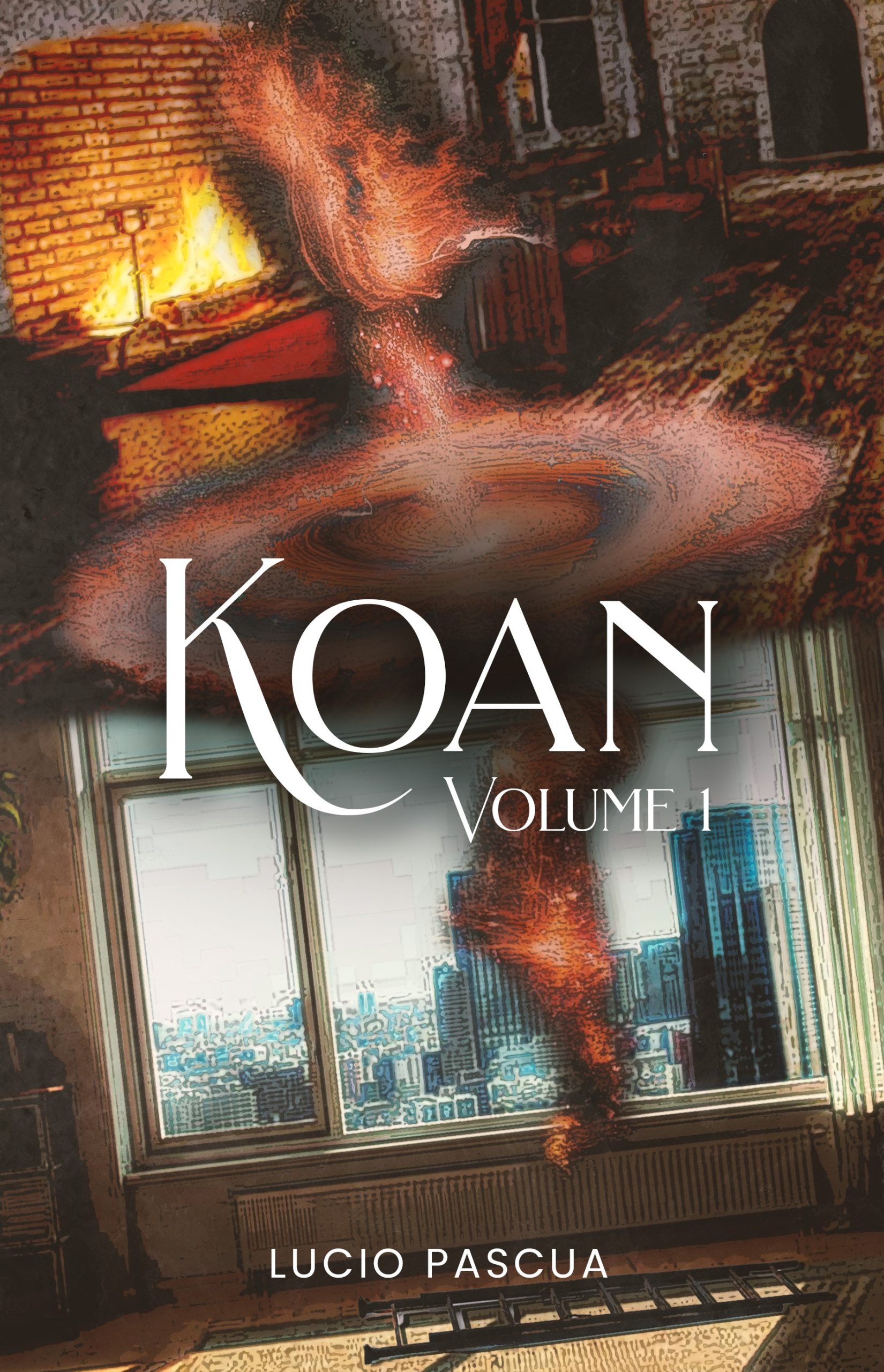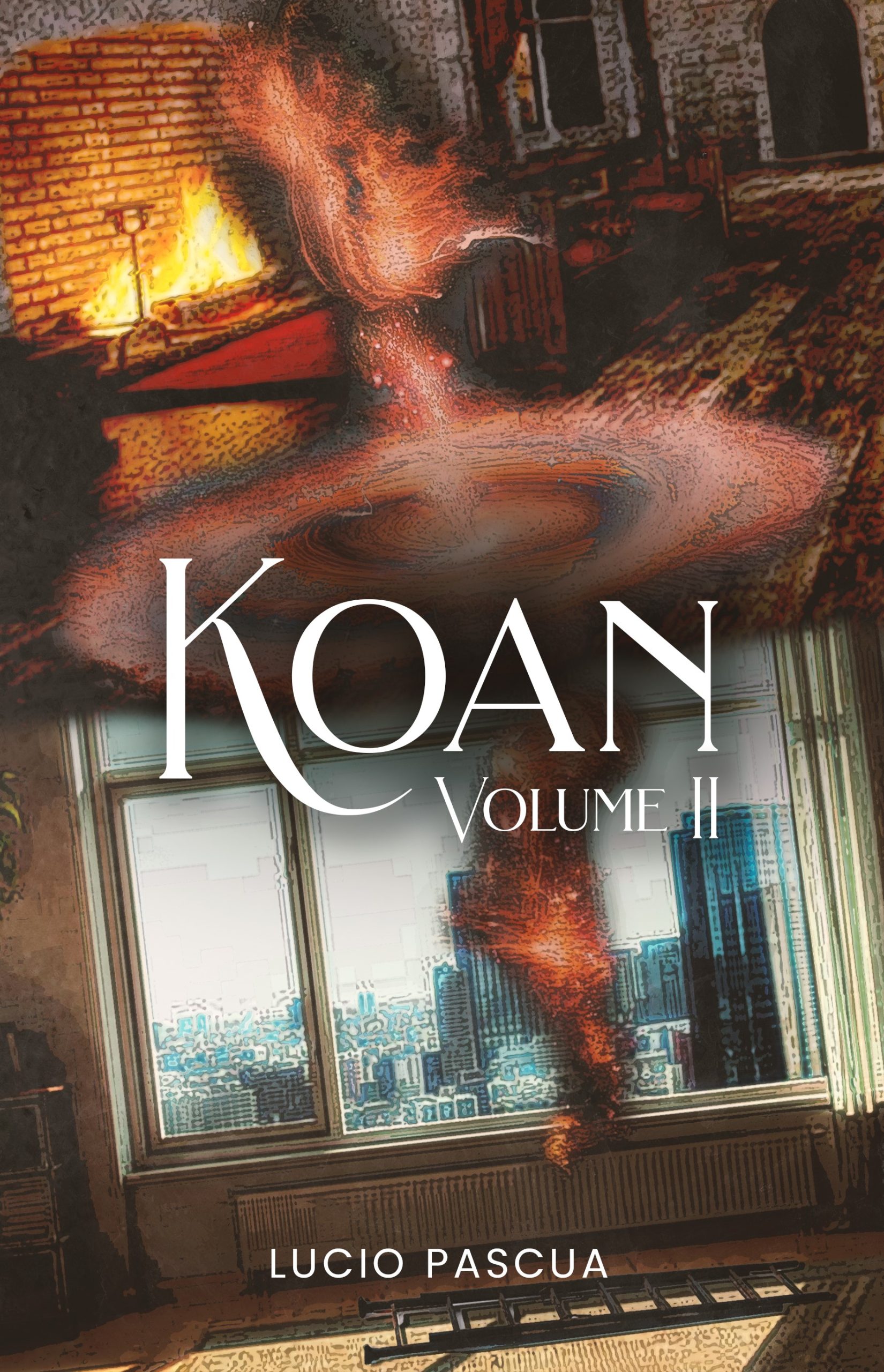If there ever was a book that whispered secrets from the stars while planting roots in the soul, Lucio Pascua’s KOAN would be it. It’s a literary work born out of the sacred space between story and stillness — a piece that doesn’t scream for attention but invites deep, meditative listening.
At the heart of KOAN is an unforgettable set of cosmic figures: the guardians. They aren’t your typical mythic beings battling good and evil. Instead, they are protectors of the unseen moral fabric of the universe. Among them, the Northern Tortoise stands out — a majestic, tortoise-serpent hybrid cloaked in ancient mystery.

Imagine a creature so attuned to the truths of faith, so versed in the teachings of the ages, that it could hear all prayers, know all creeds, and see forward into the fate of humanity. That’s the Black Warrior of the winter and water. Not just a protector, but a prophet. Not just a beast, but a beacon.
And what does this mystical being hold in its hands? A prayer mound and a spear. Symbols of peace and war, stillness and action. Pascua uses this duality masterfully, showing how true guardianship means standing ready to act with force or remain grounded in faith, depending on what is needed.
But KOAN is more than just about cool mythic beings. It’s about an ancient notion — that those who protect the vulnerable gain the guardians’ favor. It’s a cosmic boomerang of kindness. Help the powerless, and the universe will shield you through its celestial emissaries. This isn’t just magical realism. This is moral realism wrapped in celestial allegory.
The origin of this belief is also beautifully spiritual. The Eastern Dragon and Northern Tortoise — representing elemental wisdom and divine foresight — co-created this pact. It’s like Eastern philosophy and esoteric spirituality shaking hands across the sky.

And then there’s that chillingly poetic idea: if you live for a thousand years, you can speak any language. This moment in the book isn’t just myth-building — it’s a metaphysical metaphor. In Pascua’s world, longevity is rewarded not with power but with understanding. It’s a call to readers: true growth is measured in wisdom, not in years.
What makes KOAN so hypnotic is the way Pascua blurs the lines between the mystical and the moral. You don’t read it so much as meditate on it. The story reveals itself like a Zen koan — slowly, meaningfully, and with layers. It’s both a riddle and a revelation.
Every element — from the cold serenity of the North, to the ancient eye of the Tortoise, to the quiet pact of guardianship — feels like a lesson dressed as legend. This is magical realism at its best: not fantasy for escapism, but for awakening.
In a literary world crowded with action-packed myths, KOAN takes a different path. It breathes. It reflects. It teaches.
If you’re into magical realism that nourishes the spirit while enchanting the mind, KOAN is not just a book — it’s a guardian waiting to speak.